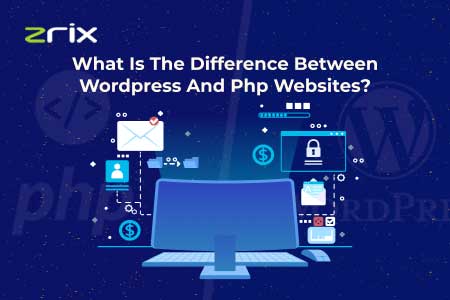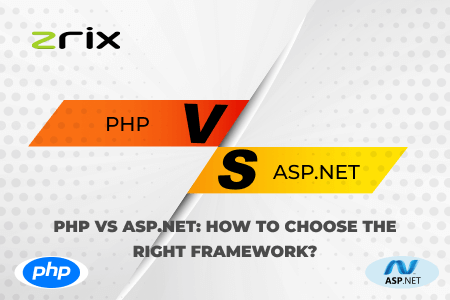Introduction
In the dynamic landscape of web development, PHP, despite its age. continues to be a prominent choice for building websites and web applications. Despite the emergence of newer languages and frameworks. PHP maintains its relevance and widespread adoption. we'll delve into the reasons behind PHP's enduring popularity in the modern world. PHP is one of the oldest programming languages. but the most efficient language in programming.
Table of Content
Wide Adoption and Familiarity
PHP has been around since the mid-1990s, making it one of the oldest server-side scripting languages for web development. Its longevity has led to widespread adoption and a vast. community of developers who are familiar with its syntax and functionalities. For many developers and businesses, sticking with PHP means leveraging existing.
expertise and resources, reducing the learning curve associated with adopting newer technologies. There are so many CMS(Content Management Softwares). Majority of CMS are in php language means that CMS developed or created in PHP language.
Versatility
One of PHP's strengths is its versatility. It can be used for a wide range of tasks, from simple website scripting to complex web applications. Whether you're building a small personal blog or a large-scale enterprise application. PHP offers the frameworks necessary to get the job done. PHP integrates with other technologies used in web development, such as HTML, CSS, and JavaScript. PHP is a backend language.
Mature Ecosystem
PHP is a mature ecosystem of libraries, frameworks, and tools that streamline the development process. Frameworks like Laravel, CakePHP, Symfony, and CodeIgniter provide developers. with robust solutions for building secure, scalable, and maintainable web applications. These frameworks come with built-in features. Such as routing, database abstraction, and authentication, allowing developers. focus on building core functionality rather than reinventing the wheel. PHP is a server side programming language.
List of some popular PHP frameworks
Laravel
is the most popular PHP framework, with powerful features, and robust ecosystem. It follows the MVC (Model-View-Controller) architectural pattern and offers. features like routing, ORM (Object-Relational Mapping), authentication, and caching out of the box.
Symfony
Symfony is a high-performance PHP framework known for its flexibility and scalability. It provides a set of reusable PHP components that can be used or as part of a full-stack framework. Symfony is well-suited for building complex web applications and APIs.
CodeIgniter
CodeIgniter is a lightweight PHP framework known for its simplicity and speed. It requires minimal configuration and has a small footprint, making it excellent. CodeIgniter emphasizes simplicity and developer productivity.
CakePHP
CakePHP is a rapid development framework for PHP. that follows the convention over configuration (CoC) principle. It offers features like scaffolding, ORM, validation, and built-in security features. CakePHP aims to make web development faster and simpler.
Performance Improvements
PHP has been criticized for its performance compared to other languages like Node.js. Python, significant improvements have been made over the years. The introduction of PHP 7 brought large performance enhancements. Including faster execution times and reduced memory consumption. These improvements have made PHP a more viable option for high-traffic. Websites and applications, narrowing the performance gap with other languages.
Community Support and Updates
PHP benefits from a vibrant and active community of developers who contribute to its ongoing development. The PHP community releases updates and security patches to address and improve performance. ensuring that PHP remains a secure and reliable choice for web development. The PHP community provides ample resources, documentation. Support forums, making it easier for developers to troubleshoot issues and share knowledge.
Compatibility and Legacy Systems
Many businesses and organizations rely on legacy systems built with PHP. These systems may contain critical functionality that cannot be migrated. Newer technologies without significant time and resources. As a result, there's often a need to continue maintaining and updating PHP-based. Applications to ensure compatibility with modern web standards and security practices.
Conclusion
In conclusion, PHP continues to thrive in the modern world of web development due to its wide adoption, versatility. Mature ecosystem, performance improvements, community support, and compatibility with legacy systems. While newer technologies may offer certain advantages. PHP remains a solid choice for building a wide range of web applications. As the web development landscape continues to evolve. PHP is likely to adapt and remain a relevant and viable option for developers worldwide.




